Today is a day of fasting and prayer for peace in the Middle East. Last week, the heads of churches in Jerusalem called for the “people of our congregations and all those of goodwill around the world to observe a Day of Prayer and Fasting.”
As we pray for the Middle East, we have evidence that peace is truly possible.
Catholic Extension Society, in its mission to build up Catholic faith communities in poor regions of America, supports many people who have suffered through violence. This includes war refugees, survivors of school shootings and victims of racial hatred.
Two weeks ago, we celebrated the feast of St Francis of Assisi, whose life inspired the prayer “Make me a channel of your peace.” These words seem more important than ever as we witness the outbreak of war in the Middle East. Catholic Extension Society supports the Church in very poor and historically troubled places in our country.
This past year, Catholic Extension Society has spoken with Catholic leaders who were peace builders amid violence, hatred and disaster. Here are some of these perspectives from Catholics who lived through seemingly hopeless situations of violence and war. They show us that hope and peace are always possible.
Sister Marie-Paule Willem, FMM | WWII survivor and nun who served during brutal regime in South America
Sister Marie-Paule Willem, FMM, is a native of Belgium who entered religious life after surviving Nazi occupation during World War II. She endured further warfare while serving in South America under a brutal regime. Her ministry in Las Cruces, New Mexico, is supported by Catholic Extension Society.
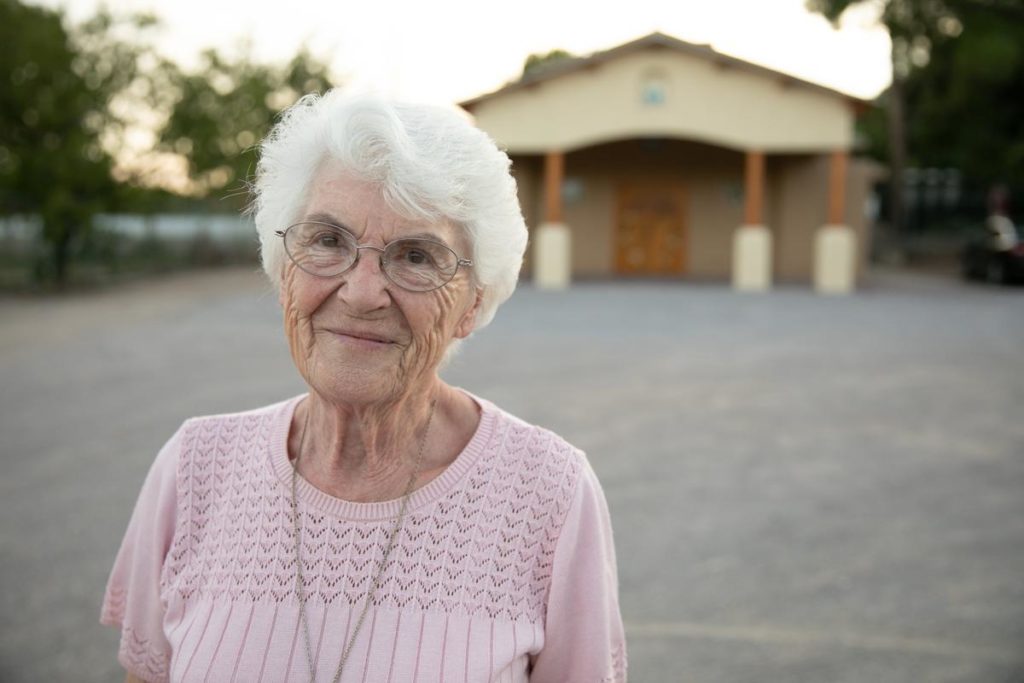
Now in her 90s, she said she still feels the pain from the violence in her childhood.
“I’m traumatized, and I will be for the rest of my life,” she said. “So I am old and still have to cry about what happened to our beautiful nation, to our beautiful people.”
“War, as I said, is terrible and tyrants are all over. And they know their time is limited, and they maintain control through submission. Through killing their opponents through oppression because oppression is their weapon. It’s the worst humanity can do.”
“Aren’t we living in a strange time? Aren’t we living historical moments? Aren’t we living in a dysfunctional world? Could it be, I always would say ‘Could it be worse than what we are living in?’ And we survive, and we go through it, and we overcome it because there is always hope. I love God and I love His creation, animals and the people and plants and everything. I’m Franciscan. So this helps me a lot.”
She said that she finds that prayer can be not only a solace, but a solution.
“There is nothing that love cannot face. We can always expand our hearts. But without prayer, I become deaf to the voice of love. Prayer is the discipline of listening to the voice of love. The voice of Jesus, who is the creating love of God. Without prayer, I cannot see my brother and sisters as God sees them. Without prayer, I cannot be attentive to them as God is attentive to each of us.”
She shared one of her favorite prayers:
“Lord, you give me hope and courage to face each newborn day. You guide me through the shadow to light and show the way. You comfort and sustain me in times of my distress. You give me inspiration to find true happiness. You grant me forgiveness when I may go astray. You help me in my trials and do my fears allay. You never do forsake me in moments of despair. And when I need a helping hand, I always find you there.”
Watch her full video, which was created as part of Catholic Extension Society’s series, “Faith in Times of War and Conflict: Stories of Battle-Tested Catholics”:
Deacon Enrique Padilla | Vietnam War veteran
Deacon Enrique Padilla is a wounded warrior who became a faithful soldier for Christ after narrowly escaping death in Vietnam.
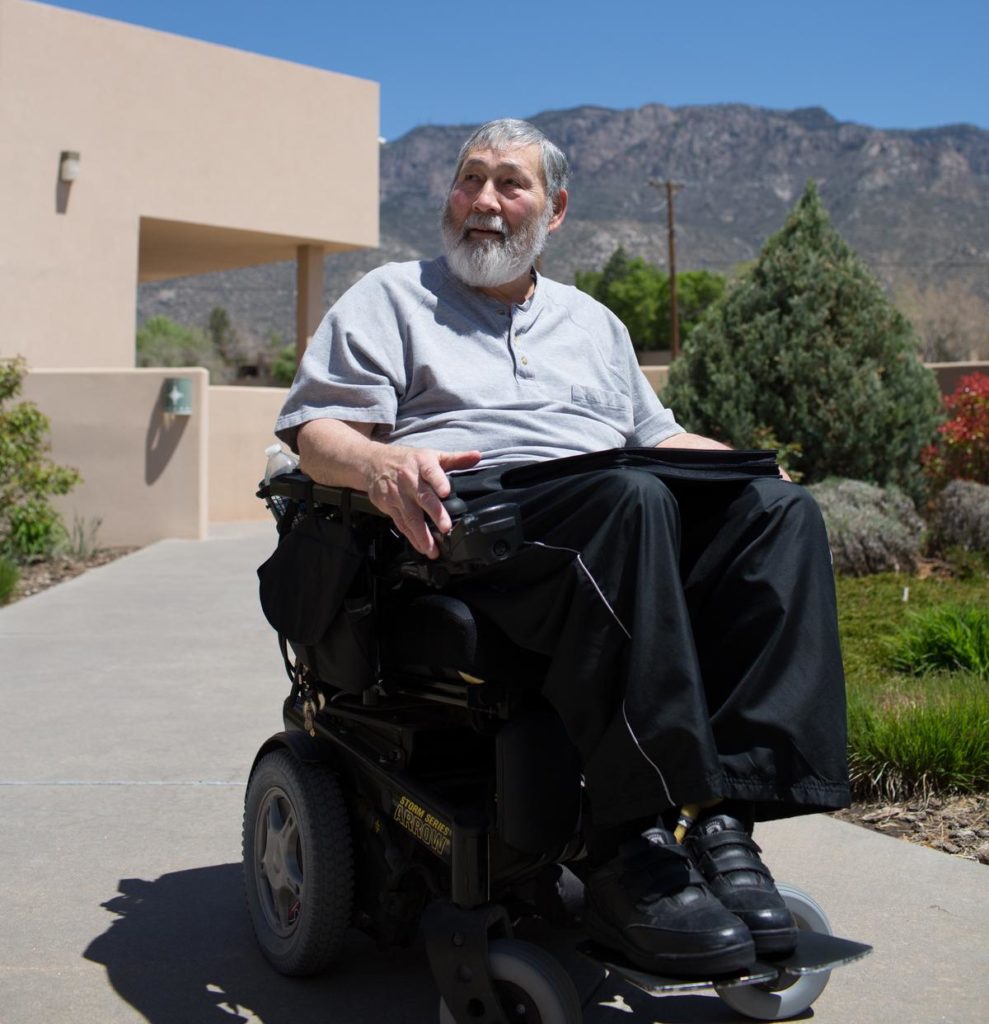
He put his life on the line during the Vietnam War and came out of it a lone survivor, nearly dying at the hands of the North Vietnamese Army. He credits his survival to Our Lady of La Vang, a Vietnamese Marian apparition.
The war embedded scars beyond those left behind by the bullets that took away his mobility. Padilla’s trauma also challenged him in the form of anger for the longest time.
“Once I realized that the anger was not mine to keep, the anger was destroying my life, my wife, my children they were very small back then. And I had to do something about it,” he said.
“I started realizing that I must fulfill the battlefield promise of serving her, her Son, and her Church forever. I started serving in ’72 and I haven’t stopped since.”
Him and his wife shared this message of hope:
“Don’t give up, bring into your heart, not only Our Lady because she is our Mother, but don’t give up on Jesus. Because we have a Mother and she is our Mother, we are her children. Jesus our savior and God our Father.”
Watch their full video, which was created as part of Catholic Extension Society’s series, “Faith in Times of War and Conflict: Stories of Battle-Tested Catholics”:
Archbishop Gustavo García-Siller, MSpS | Archbishop of San Antonio and shepherd of families in Uvalde, Texas
Catholic Extension Society has worked with Archbishop García-Siller to help the small town of Uvalde, Texas, heal after the May 2022 mass shooting at Robb Elementary School that took the lives of 19 children and two teachers. To date, Catholic Extension Society has awarded 30 full scholarships to children of Robb Elementary who sought to transfer to Sacred Heart, Uvalde’s Catholic school which is part of the Archdiocese of San Antonio. Additionally, Catholic Extension Society worked with the archdiocese to launch a summer camp providing Uvalde students a safe place to heal and have fun.
Archbishop García-Siller has been a constant presence and source of hope for the grieving Uvalde community as they work each day towards healing.
At a Mass he celebrated earlier this year on the one-year anniversary of the tragedy, he affirmed to family members of the victims in attendance, “True love conquers everything.”
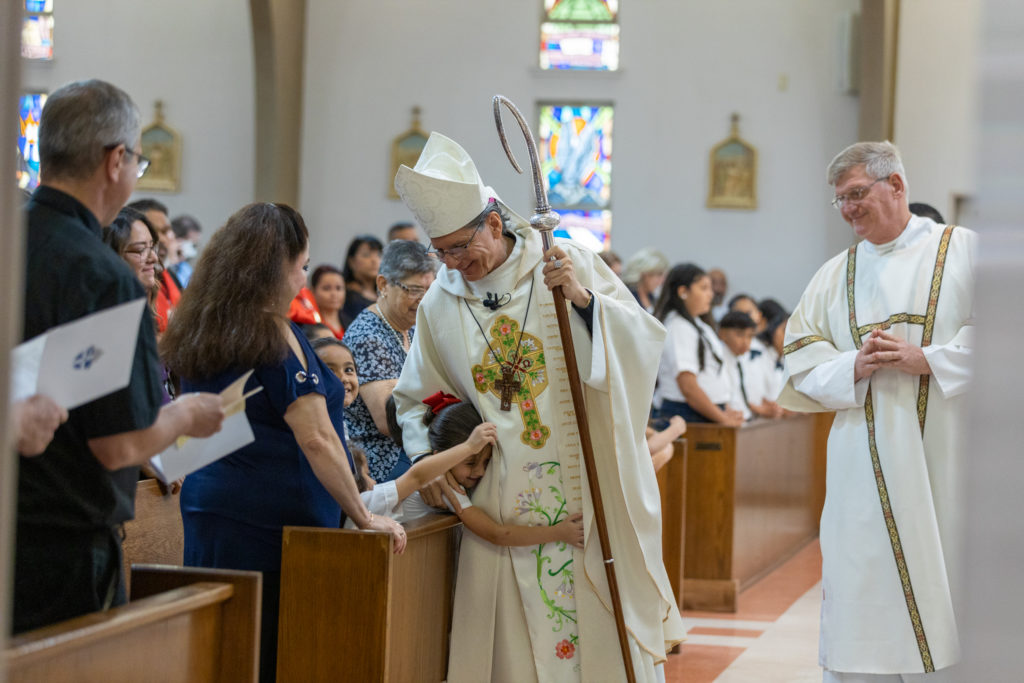
He recently spoke at a Catholic Extension Society event on how to be a peacemaker in the midst of violence
He said that conflict is a part of human nature.
“If we want to live in peace, it is essential to recognize that in this life, conflict indeed is a permanent feature of human existence. Because we are unique and unrepeatable social creatures. Endowed with reason, freedom, and passions, human beings are destined to quarrel with each other throughout their lives in all the different spheres of existence. We cannot hope to be unique, free creatures without accepting the fact that differences will constantly rise among us.”
However, “conflict saves us from the temptation of thinking that we are always right,” he said. “In fact, it saves us from the temptation of thinking that we are like gods or heroes of the ancient past, who were believed to be entitled to exercise their power and even inflict death on others, just because they had more prominent position.”
He said the Church has a responsibility to advocate for peace in the world.
“According to Pope Francis, the story of Cain and Abel teaches that we have an inherent calling to fraternity, but also the tragic capacity to betray that calling. Now it is important to note that the kind of fraternity that the Pope Francis recognizes as an essential element of human existence is not something that human beings are to achieve through the sole use of their own strength and resources.
“In other words, there are not shortcuts to peace, which would enable us to avoid the path of faith. And our need for God’s grace. Peace is a gift and we can work at it. We can strive for it, but the peace is a gift. So fraternity is a call that comes from God … It is a profound desire and a choice that human beings need to make. On a daily basis it has to be a choice.”
He said that constantly being together is not the same as being united.
“Little by little as we listen to each other to walk united because it’s a different to be together. … As a universal sacrament of salvation, the Church is called to be a beacon of unity in the world.”
Father Jack Harris | Minister to school shooting survivors
Father Jack Harris ministers to victims of violence and disaster. This extraordinary ministry started when he was a pastor in Jonesboro, Arkansas.
On March 24, 1998, two students shot and killed four students and one teacher at Westside Middle School. Father Harris became deeply involved in the school and the Jonesboro community for the next five years.
Father Harris’s father was a Little Rock police officer who was killed in the line of duty. His appreciation for the victim’s viewpoint has helped him to forge bridges between the incarcerated, their victims and their families.
Father Harris has traveled the nation assisting communities afflicted by trauma and tragedies of every kind.
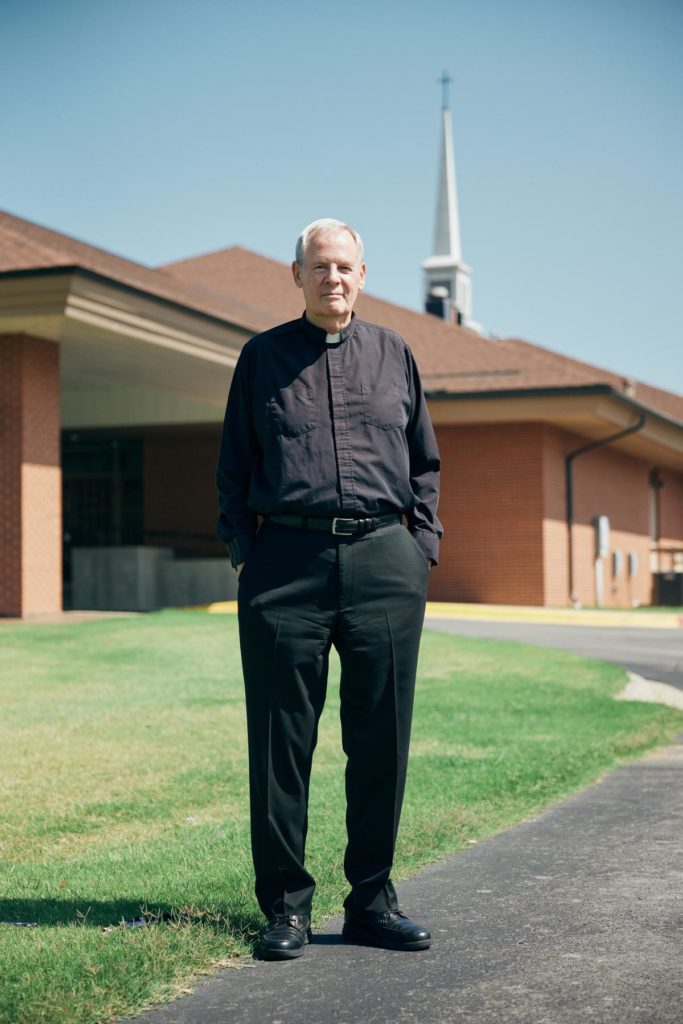
He has also spent the last 25 years as chaplain to death-row inmates at the Varner State Supermax prison in Grady, Arkansas. He said that anger is a natural response to trauma.
“We need to not be frightened by people’s anger. Anger is not a comfortable thing to be around, is it? It’s okay to say no. No, it isn’t. But sometimes anger is very useful. It’s a phase that we need to allow people to go through it. Sometimes it actually brings them, motivates them to the point where they’re actually willing to get involved in doing something in an active way.”
Father Ron Foshage | Minister to community impacted by a hate crime
Father Ron Foshage, M.S., is a member of the Missionaries of Our Lady of LaSalette and has been a priest in the Diocese of Beaumont, Texas, for over 37 years. He currently leads five Catholic Extension Society-supported parishes in the diocese, logging more than 800 miles a week to cover his six weekend Masses.
Father Foshage was awarded Catholic Extension Society’s 2020-2021 Lumen Christi Award. He received the honor for his work rebuilding a community torn apart by a horrible act of violence and racism, and for how he spends his days in east Texas helping his flock in small gestures that speak volumes.
Father Foshage helped lead the town of Jasper, Texas, as the community grappled with the aftermath of the 1998 hate crime murder of James Byrd Jr. on June 7, 1998.
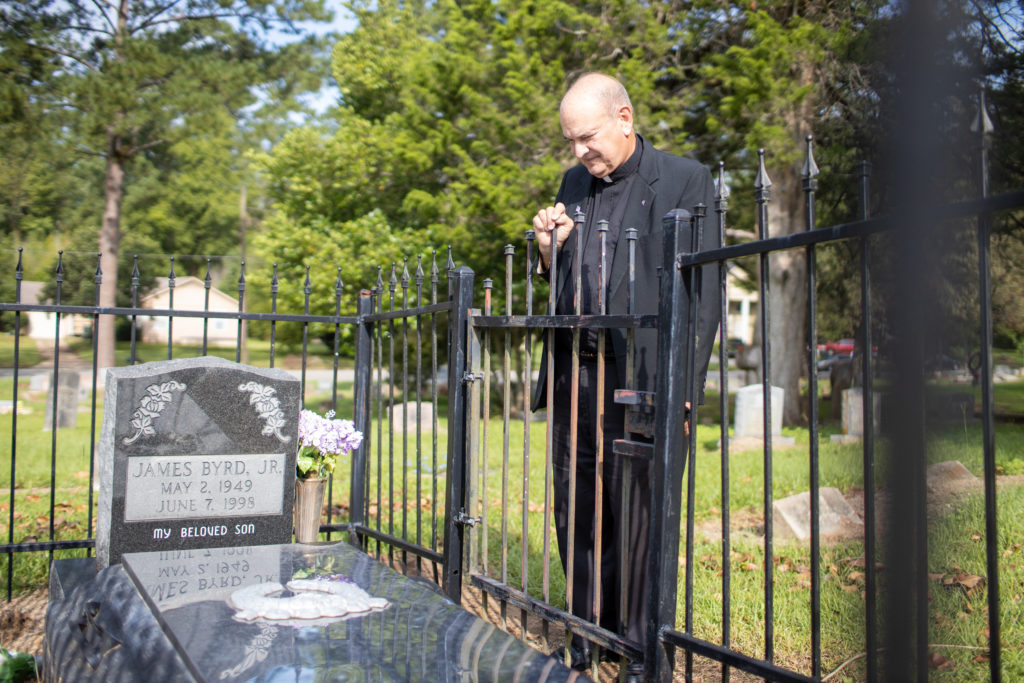
He ministered to both the grieving family of James Byrd, Jr. as well as Guy James Gray who was the prosecuting attorney in the case. Father Foshage had been a key figure of the town’s Ministerial Alliance for several years prior to the hate crime. He quickly became involved, working to bring people together, regardless of color or religion. Soon, he was embraced as “Father Ron, the Jasper priest.”
He has traversed the country as a leading voice against racism and hate crimes.
The experience taught him “that the church must be in it for the long haul in moments of trauma and suffering because that pain never completely goes away.”
“But it was so important for the people of our community to see pastors from every denomination meeting together and praying together and trusting one another,” he continued.
“These tragic events are certainly part of our fabric of our society. They’re going to occur, and they have occurred in major cities and in small towns all over this country, and I wish I knew how to stop this, but I don’t. But I do know that if pastors of churches in these, especially small communities, are united and join together and pray and speak with one voice, but also always speak honestly to their congregations I believe they’re going to heal more quickly. The pain certainly never goes away, but healing takes place. I saw it happen in Jasper, Texas 25 years ago.”
Myrtle Jean Otto and Judge Mamie McClendon Chinn | Civil Rights Movement activists
In June of 1966, Holy Child Jesus Catholic Church in Canton, Mississippi, found itself at the heart of the civil rights movement. During a peace march led by Martin Luther King Jr., parishioners were threatened, bombed and tear gassed.
Faith helped young Black Catholics in Canton, Mississippi, to not only press forward, but also to lead lives that have inspired others. Holy Child Jesus was and continues to be a sacred place for the community as it strives to develop peace and equality for all.
Catholic Extension Society met with two of the parishioners who were part of the movement.
Myrtle Jean Otto is a parishioner at Holy Child Jesus Catholic Church in Canton, Mississippi. She attended Holy Child Jesus school as a child. She credits God for seeing the community through the violence.
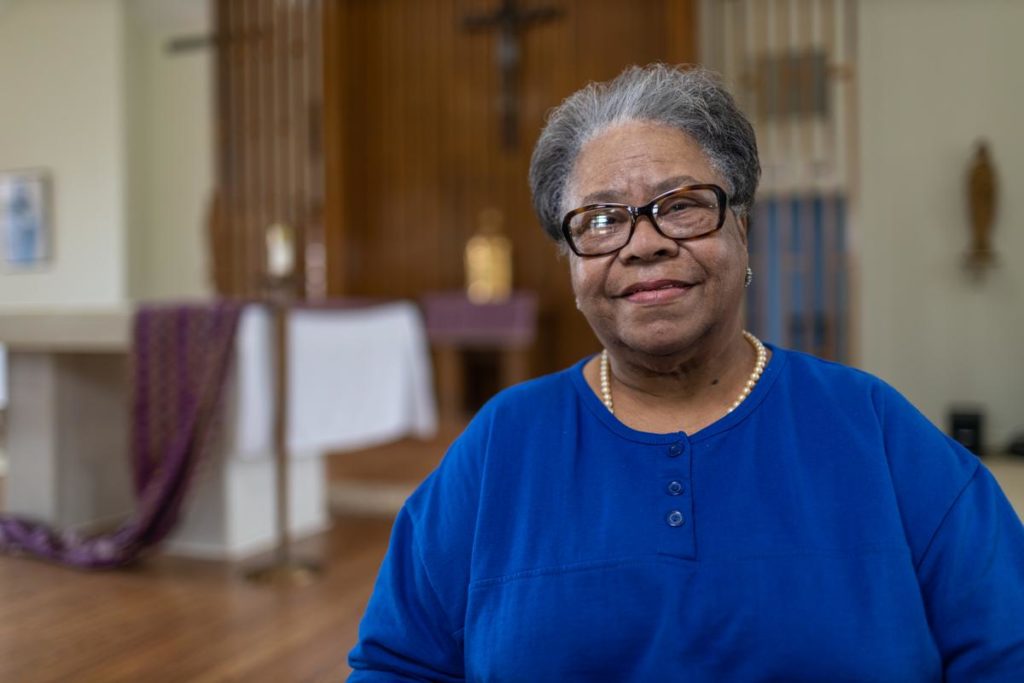
“We always prayed for peace, we prayed every morning before class started and we prayed at the end of the day.”
“We knew how much danger we was in but God protected us. He had his shield around and protected everybody. … [Faith] helped to make me strong. If you don’t have faith you don’t have nothing, because faith help us to keep going, to carry on.”
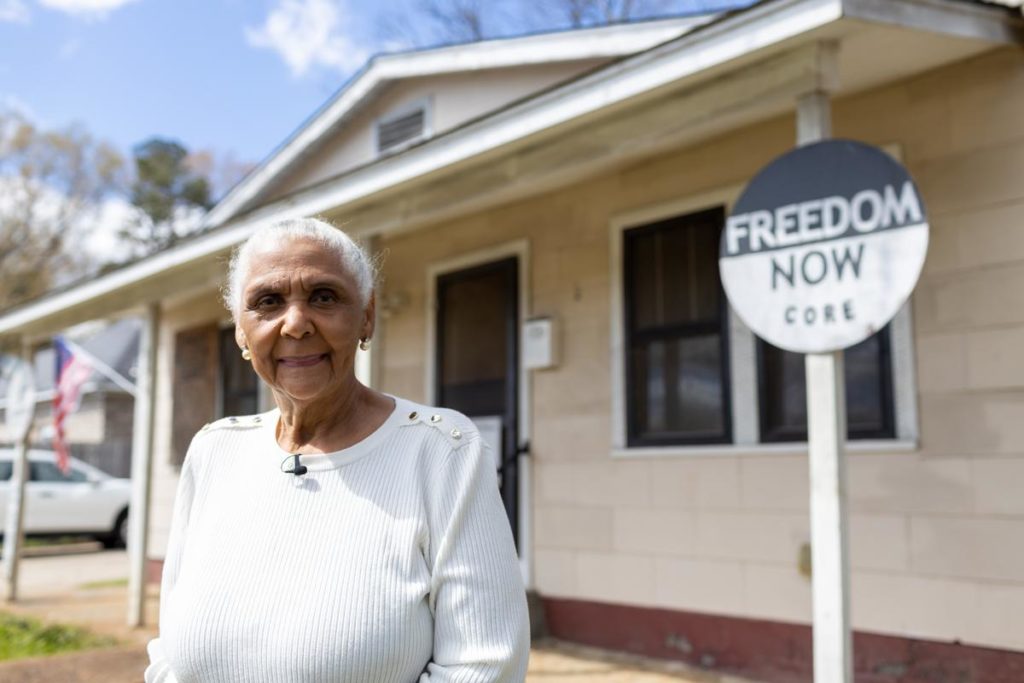
Judge Mamie McClendon Chinn is also a parishioner, and was part of the Civil Rights movement as a young adult.
“I remember being very, very excited, somewhat fearful, and filled with a hope that I had never had or experienced. I want the church to be really, really cognizant of the impact they have on people like me. The church was a refuge where I could go and the other Catholic individuals and other folks, not only just say Catholic people, but the church and the sisters, we felt that we could come, we could go, and we could talk and we would be listened to, and we would be in a sense, safe. I simply would not have made it without the church, without the priest, without our sister.”
She said that, looking back, she is glad that she was a part of the this pivotal moment in history.
“I actually thank God that I was alive and well, and able to be a participant in the early, early movement here in Canton. It was a blessing. I may not have known that as a blessing right then and there at the time, but it was a blessing.”
Watch their full video, which was created as part of Catholic Extension Society’s series, “Faith in Times of War and Conflict: Stories of Battle-Tested Catholics”:


